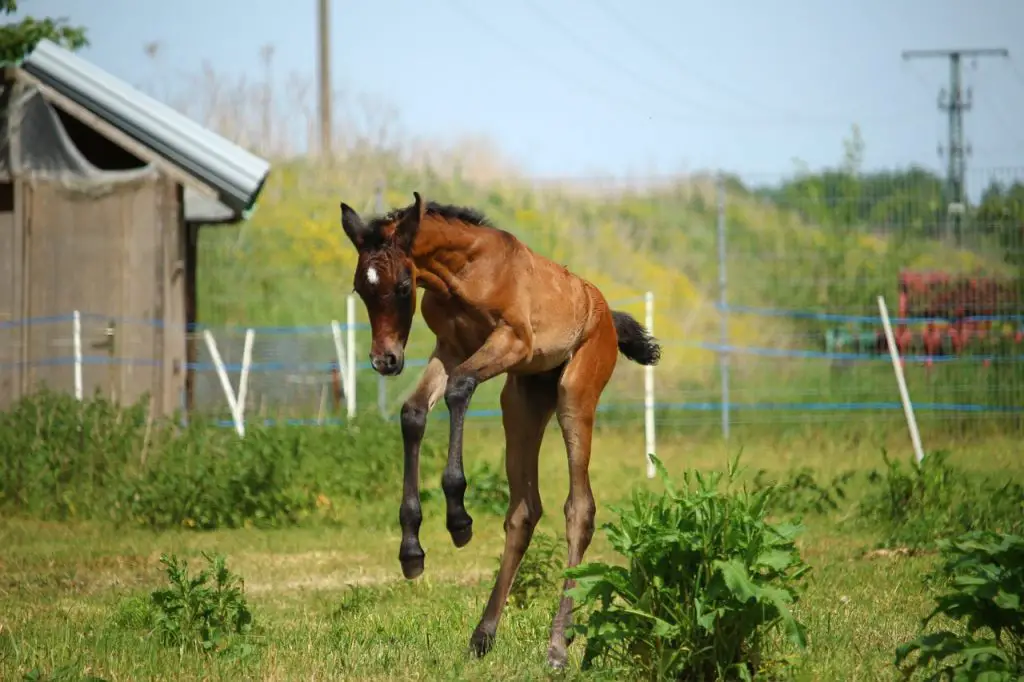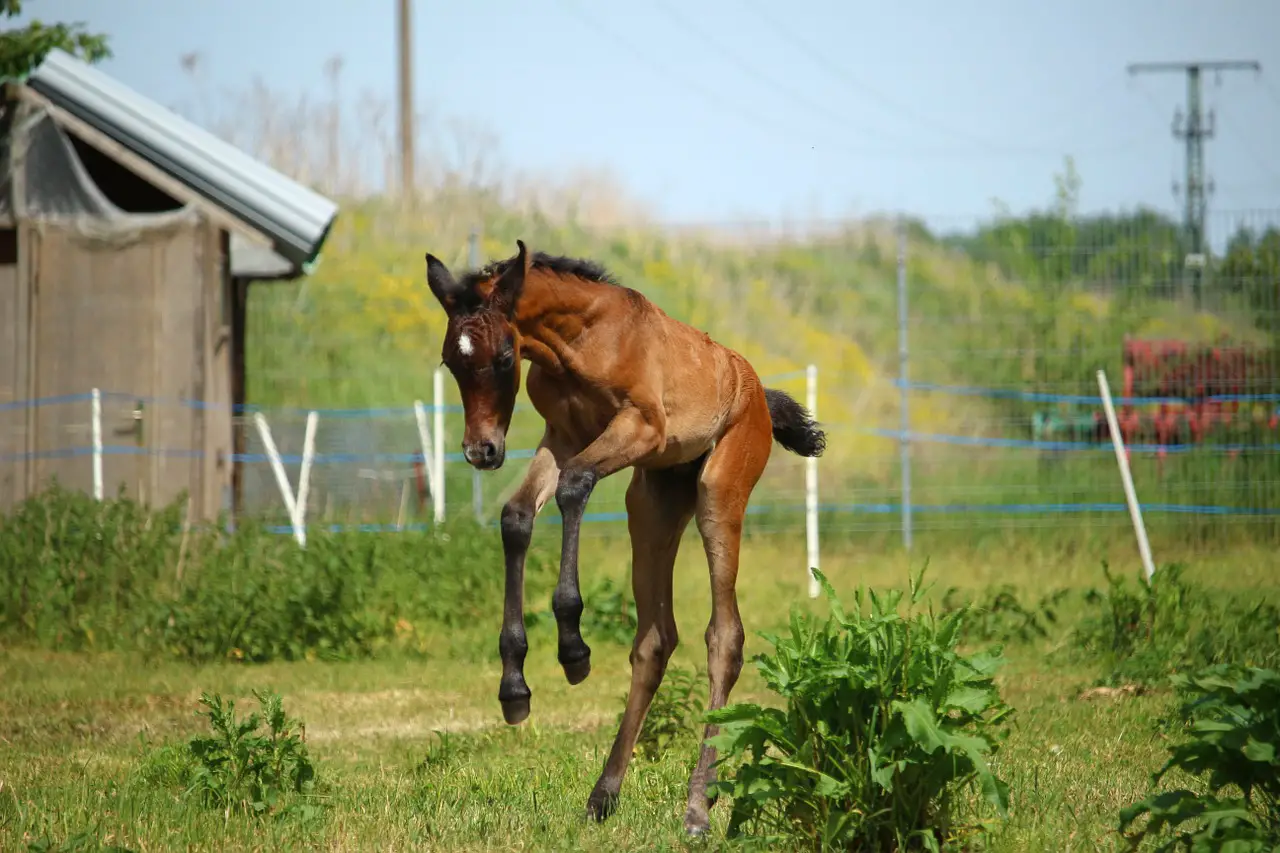Last Updated on February 21, 2022 by Allison Price
Equine babies are hungry from the beginning. In their first days of life, foals can nurse up to ten times per hour. The foal needs to eat frequently for their health. Colostrum is preferred to milk during the first 12-24 hours after birth. Colostrum is rich in antibodies which protect foals from disease and help them develop their own immune systems. Colostrum provides foals with the glucose, protein, vitamins, and energy they need to grow and move around quickly after birth.
Foals within the first month nurse regularly and consume 33 lb (15 kilogram) of milk daily. The foal can gain up to 3 lb (1.55 kg) per day during this period and can double its birthweight within the first month. In the first few weeks of life, foals start to nibble grass and taste the mare’s grain ration. However, milk is still the best source of nutrition in the first few months.
Fortified rations are a great way to give your mare the nutrition she needs to have a healthy foal. The lactating mare expends a lot of energy during milk production after giving birth. The mare could lose significant weight if her diet is not supportive of this effort. This feed should be suitable for mares who are nursing broodmares. It is also appropriate for foals, as they will often sample what the mare eats.

As a foal matures, its digestive system is affected. The foal is only able to absorb the antibodies from colostrum within the first 12-24 hours of birth. It can’t process solid food efficiently until it is approximately two to three months. The action of lactase digests milk. As the small intestine grows in size and area, nutrients are absorbed. At four months old, maltase has become abundant enough to ensure that the enzyme can be used to digest forage and grains. As the hindgut develops, it becomes populated by numerous microorganisms that break down and ferment fiber.
Foals are typically weaned between four and six month old. At this point, foals are usually weaned at four to six months old. The mare’s milk provides a smaller amount of their daily nutritional requirements than what the foal gets from forage or grain. The standard guideline for weanlings is to feed them grass or hay every other month, and to split the total amount into two feedings per day. Managers should regularly weigh weanlings , with an eye on a steady, slow growth rate. Growing horses should get plenty of exercise to avoid developing skeletal problems. They should also not be allowed too much weight.



